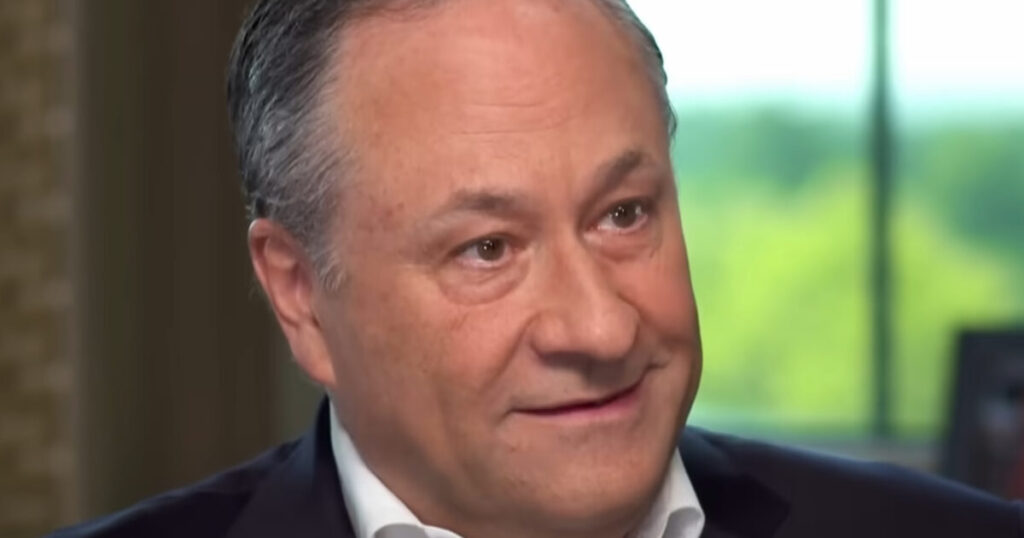Doug Emhoff, the husband of Vice President Kamala Harris, recently made an appearance on MSNBC to discuss current campaign developments. His conversation, however, turned into a rather peculiar anecdote regarding an imaginary young voter who supposedly switched their political allegiance from Donald Trump to Kamala Harris. Emhoff narrated this tale about an 18-year-old who purportedly abandoned Trump after he ceased consuming podcasts and UFC content, eventually becoming captivated by one of Kamala’s speeches. The strange narrative seemed almost too far-fetched for many, particularly considering the political climate and the demographics typically associated with such a transition.
The anecdote sparked significant reactions, especially from those who identify with the MAGA movement. A prominent commentator, Johnny Maga, shared his disbelief on social media, mocking Emhoff’s narrative. He ridiculed the statement, suggesting that it lacked credibility and mocking the absurdity of the story. Emhoff’s attempt to paint a picture of young voters being swayed by speeches rather poorly came off as a contrived attempt to generate enthusiasm for the Biden-Harris campaign, suggesting that young voters were energized by Kamala’s rhetoric. The lighthearted sarcasm in Johnny Maga’s response highlighted the division among political supporters and the skepticism with which some viewed Emhoff’s claims.
Elon Musk, the billionaire entrepreneur and CEO of Tesla and SpaceX, also chimed in on the discussion, adding his voice to the growing skepticism. Musk tweeted a straightforward dismissal of Emhoff’s claim, stating, “I’m pretty sure that never happened even once.” This succinct rebuttal underscored a broader public sentiment questioning the authenticity of the narrative presented by Emhoff. Musk’s comment resonated with many who felt that the tale was not only implausible but also reflective of a larger disconnect between political elites and young voters.
The broader implications of this anecdote touch on the challenges facing the Biden-Harris campaign as it seeks to connect with younger audiences. Young voters are often viewed as crucial to electoral success, and their engagement is essential for any campaign. However, stories that seem contrived or lack authenticity can backfire, leading to distrust and disinterest among this demographic. Both Musk’s and Johnny Maga’s reactions illustrate that there is a significant skepticism from some corners regarding the messages being promoted by the current administration.
In an era marked by heightened political polarization, narratives that do not resonate with the experiences and realities of voters may only serve to alienate potential supporters. The mentioned anecdote reflects how political narratives can be perceived through various lenses, highlighting the diverse and often opposing interpretations within American society. In this context, the political landscape is constantly shifting, and the success of any campaign is dependent on its ability to connect meaningfully with voters rather than relying on abstract or unrealistic claims.
Ultimately, the incident involving Doug Emhoff’s remarks showcases the ongoing struggle within American politics to bridge gaps between different voter demographics. It emphasizes the importance of authenticity and relatability in political discourse, particularly when addressing younger generations. As the campaign trail progresses, the effectiveness of various strategies, including storytelling, will be put to the test, as candidates work to forge genuine connections in an environment characterized by skepticism and division. The reactions to Emhoff’s narrative serve as a reminder that voters today are more discerning than ever, seeking credibility and sincerity in the political narratives presented to them.

